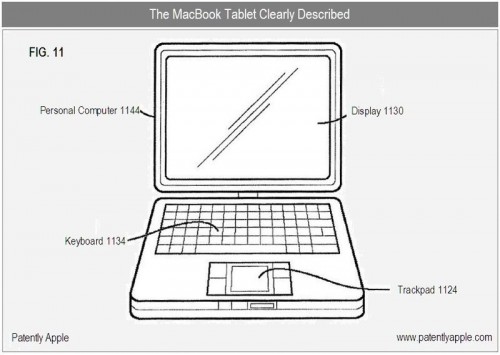Google's Schmidt echoed Apple's Steve Jobs comments a couple weeks ago regarding OS versions. More specifically, that a single OS cannot current be optimized for touch and for keyboards. The OS can't serve two masters. Steve Jobs had delivered the exact same line at the launch of the updated Mac Book Air line and preview of Lion, their upcoming OS X update.
A tablet is intended to be held and used horizontally. The navigation is designed specifically for the fingers; taps, swipes, and pinches. With the iPhone, Apple taught the world how powerful and intuitive a touch interface could. They've followed up on the success of the iPhone with the iPad. The iPad is considered by many to be one of the the most successful consumer products of all time. Apple wasn't the first to the tablet game, Microsoft introduced tablet computers about 10 years ago but failed to find any meaningful success. One might point to Mr. Ballmer's constant criticisms of "Google's two operating systems" that he still doesn't understand the important nuances of touch vs. keyboard user experiences. Microsoft's answer to tablets is a touch-enabled version of Windows 7, the same OS they're pushing for keyboard input devices.
At the Mac Book Air launch event, Mr. Jobs spent a good amount of time discussing the important user experience differences between the tablet and the PC. The tablet screen is going to spend it's time horizontally while the PC screen is vertical. There's no comfortable way to interact with a vertical screen over a sustained period of time via touch so the keyboard continues to be the best option. The OS for the vertical screen needs to be optimized for keyboard-centric navigation. The design of the navigation menu's is going to be inherently different.
Android and iOS will be used primarily to power touch devices while ChromeOS and OS X will be used to power keyboard driven devices with vertical screens. These elements will certainly blend - Google TV for example is powered by a version of Android. Apple is also blending elements of iOS into Lion, the next version of OS X.
iPhones, iPads, Macs and Androids are quickly finding their way into enterprise environments. IT departments simply couldn't keep iPhones out, they either fell in love with the devices themselves or were quickly overtaken by business users making requests or simply taking matters into their own hands. Android has quickly followed the iPhone's path, the devices are simply more enjoyable to use than the de facto status quo Blackberry. Macs had effectively been shut out of corporate IT for most of their history but Apple's continued investment and extreme user-centric design of software and hardware has been leading to big gains in enterprise and government customers. Google has over 30 million users utilizing their Google Apps suite for business, no doubt ChromeOS will benefit from the same great integration with the communications and collaboration suite as Android. The corporate environment is starving for disruption.
Corporate IT has been horribly stale and wasteful for much of the last two decades. 75% of corporate PC's are still running XP. Some estimates put the global cost of failed IT projects at more than $6 Trillion a year. There are many reasons IT projects fail, but the defense of the status quo is certainly a consistent contributor. People who are not comfortable with technology do what they're told. People who have used an iPad come to realize that it's not that they're "not a computer person" or "just don't get technology" but that much of technology and especially enterprise applications actually really suck. Today people are asking for more. The OS's leading the way to give people what they want are Apple's iOS and OS X as well as Google's Android and soon to be released ChromeOS. Many of us spend most of our life interacting with technology, this is very personal.


No comments:
Post a Comment